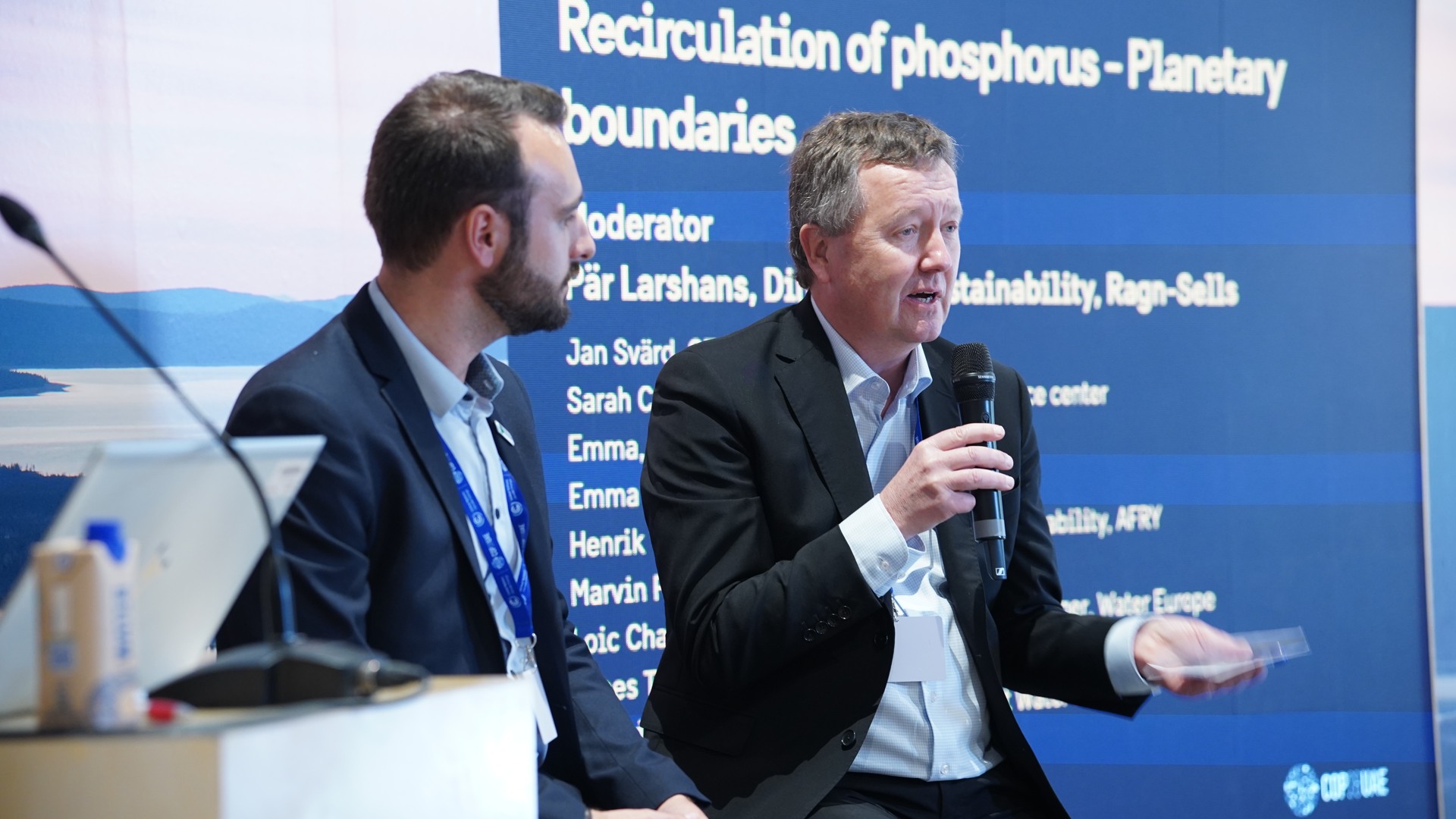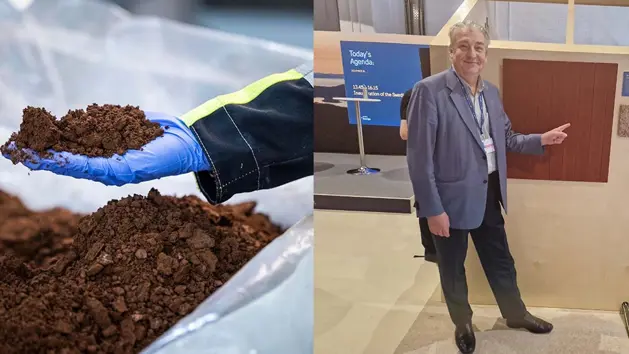
Key takeaways from COP28
At the recent UN Climate Change Conference, COP28, EasyMining took center stage, actively hosting and participating in various sessions. Jan Svärd, CEO of EasyMining, who attended the conference and engaged in ten seminars, reflects on his experience.
18 Dec 2023EasyMining participated in the Swedish delegation alongside their parent company Ragn-Sells and approximately thirty other actors and companies, including Northvolt, Volvo, and Ikea.
Reflecting on the conference, Jan Svärd emphasises a positive atmosphere, noting a distinct shift in the focus on circularity compared to previous climate summits.
– One thing was clear: Companies are driving for a faster transition today in a way that is completely different from before. Companies are ahead, and legislators and politicians are trying to keep up, he says.
Within the Swedish Pavilion, EasyMining presented three technologies for extracting nutrients for mineral fertilisers from waste: Ash2Salt for potassium and other salts, Ash2Phos for phosphorus, and Aqua2N for nitrogen. Additionally, two circular products derived from the Ash2Phos process - a brownish mud-paint and a sound-absorbing panel - were showcased, with red sand playing a key role as an essential ingredient.
In a world where agriculture contributes to one-third of global emissions, the production of fertilisers plays a significant role in it.
– We are showing the world how, by reusing the nutrients we have already produced, we can significantly reduce climate impact. Our message is that circular fertilisers are the only way to achieve sustainable food production, says Jan Svärd.
The future of food supply was also a focus during the meeting, emphasising the need to produce food for an additional two billion people without exposing the planet to even greater stress.
– It is truly a Ten Billion Challenge – the realisation that continuing to produce nutrients as we do today is not sustainable has gradually grown among the world's decision-makers for every climate summit we've participated, Jan Svärd continues.
Through circulated nutrients, the climate impact of agriculture can be drastically reduced, while producing more food without exceeding planetary boundaries.
– Now it's crucial to establish circular legislation in the EU so that recycled nutrients can be fully utilised and truly replace fertilisers that leave a significant climate footprint, Jan Svärd concludes.
